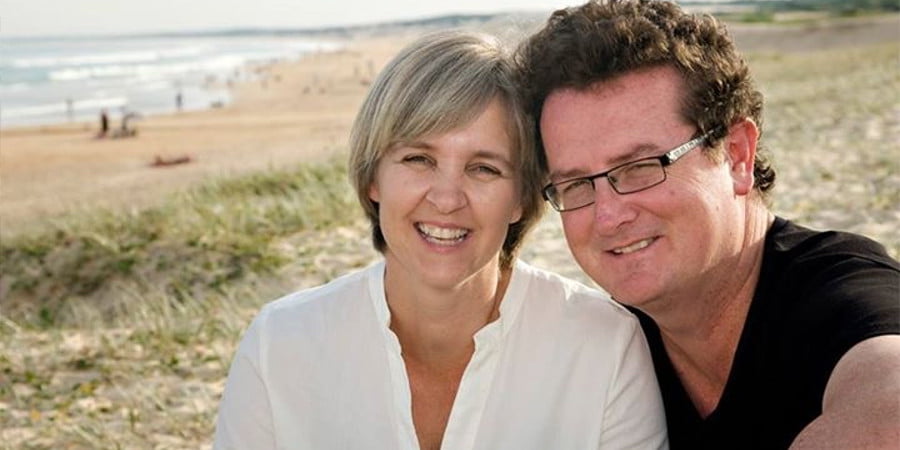I too have been shocked by the violence in Paris over the weekend. It is almost incomprehensible to me that people would walk into a public space, fire off rounds from a machine gun with the sole intention of killing people, then blow themselves up. It makes me both angry and sad. But it also makes me wonder how I should respond. In particular, how do I respond as a follower of Jesus?
Here I am left with some uncomfortable challenges, for Jesus’s instruction seems quite clear.
“You have heard that it was said, ‘Love your neighbour and hate your enemy.’ But I tell you, love your enemies and pray for those who persecute you, that you may be children of your Father in heaven. He causes his sun to rise on the evil and the good, and sends rain on the righteous and the unrighteous. If you love those who love you, what reward will you get? Are not even the tax collectors doing that? And if you love only your own people, what are you doing more than others? Do not even pagans do that? Be perfect therefore, as your heavenly Father is perfect”.
Those words were not easily spoken, nor I suspect were they easily received. Jesus spoke to people who lived under the control of an occupying army. Thousands of Jews were crucified by the Romans during the time of Jesus; soldiers used their power to extort money from already poor people; indiscriminate acts of violence were perpetrated; and the merest hint of rebellion was brutally crushed. Jesus spoke to people who had very real enemies, and there would barely be a family in Israel that had not suffered at the hands of Rome and its puppets.
Jesus’s answer was not to return violence with violence, hatred with hatred, but to meet violence with kindness and hatred with love. In practical terms that meant should a soldier force me to carry his pack for a mile, I could offer to carry it for 2 miles. If somebody struck me on the cheek, instead of striking them back I could turn the other cheek, defiantly refusing to meet their violence with further violence.
Some argue that Jesus is here offering us a personal ethic, or even an ethic simply for disciples, and that the state must operate according to a different logic. I don’t buy that. Jesus calls us to love our enemy precisely because that is how God treats his enemies. So it would seem utterly strange were we to argue that the state should follow a different approach to its creator. Jesus, it seems, calls us to a completely new way, holding out the hope that love will create new possibilities.
Part of me screams out that this is ridiculous, that the only way to respond to violence is to meet it with violence; that the only way to respond to ISIS is to bomb the bastards off the face of the earth. But that hasn’t worked out well for us so far. The European powers carved up the Middle East after conquering it, creating states out of rival groups that could only be governed by a strong dictator. We went to war once more to topple the dictators, and hundreds of thousands of dead bodies later, the Middle East remains mired in tribal violence. Perhaps Jesus was right. Perhaps the only way to break this vicious cycle is to love our enemies.
What would that mean? At the level of my own personal response I think Jesus calls me to refuse to participate in the retaliatory spirit that inevitably emerges at times like these. I think Jesus calls me to pray for the well-being of both the victims of terror and the perpetrators
What would love look like at the collective level? I’m not 100% sure, but I suspect it would mean we would try to understand our enemy. We like to bathe ourselves in the rhetoric that the terrorists hate us because of our values, that they are driven by a visceral hatred of freedom. But behind every hatred of something is an aspiration for something else. Love would surely say at start by listening to aspirations.
Love surely would demand we have a fierce opposition to violence and abuse, that we do all we can to protect those who are being victimised. Maybe in a mixed up world such as the one we face, that leaves us with choices that are all bad, that some level of force is inescapable if we are to protect the vulnerable. But let us not kid ourselves. That has never been the reason we have gone to war.
Love operates with a simple maxim: you can do your damnedest, but I will meet every escalating act of violence with an escalating act of kindness. That, after all, is what Jesus did, and while it came at great personal cost it opened up the possibilities of resurrection. Perhaps if we gave ourselves both personally and collectively to loving our enemies we would see possibilities open up that we never dared to dream.






Ross Coleman liked this on Facebook.
Thomas W Schmid liked this on Facebook.
Once again Scott, you articulately sum up what so many of us who try to follow Jesus have been thinking. Great post.
thanks shona
Shona Adams Sim liked this on Facebook.
Robin Carter liked this on Facebook.
Brendan Wood liked this on Facebook.
Lee Clogan liked this on Facebook.
Karen Lee liked this on Facebook.
Hazel Shute liked this on Facebook.
Katherine Franks
Andrew Miller liked this on Facebook.
Christian Wright liked this on Facebook.
Ruth Hamilton liked this on Facebook.
It took me a while to get to this Scott, but I am so glad I did. Darkness cannot wipe away darkness, only light can do that. Hatred cannot wipe away hatred, only love can do that. If we put away the sword, as Jesus instructed Peter to do, and offer love and peace, then we would all benefit from a better world.
yup, agree
John Lammo liked this on Facebook.
Andy Coller liked this on Facebook.
I don’t know about this one Scott. Sometimes to love is to protect the vulnerable. I for one don’t want to stand back to allow anyone to take away our freedoms and to live in a world of constant terror and brutality. Sometimes Christians stand back and allow evil to go on around them because to act against it seems to go against the simple ideas about love your neighbour and turn the other cheek. It’s hard to not seek revenge and for our purpose to be pure in the midst of extreme violence but I believe we should take firm and decisive action against these sickening acts of terror. How is the question. To engage in war ends up hurting more of the innocent and the vulnerable. Will not fighting end up hurting more?? These issues are complicated and war is not and should never be easy.
hi kim, love doesn’t equate to inaction. ghandi and martin luther king led movements that changed their worlds through non-violent resistance
Dan Walz liked this on Facebook.
Hayley-Jayne Bernhardt liked this on Facebook.
Richard Burwood liked this on Facebook.
James Clarke liked this on Facebook.
Barbara Higgins liked this on Facebook.
Ralph Reilly liked this on Facebook.
Anne Aldrich liked this on Facebook.
Shirley Moore liked this on Facebook.
Forgiveness is important but never easy, here is an interesting set of stories from the Emmanuel shooting earlier this year looking at what it means for them to forgive the killer http://time.com/time-magazine-charleston-shooting-cover-story/
thanks chris
Thank you for your article Scott.
I have seen many articles that, in the face of the ISIS horrors, appeals to the “love your enemies” scripture. It’s hard to argue with that. However Jesus also aggressively and uncompromisingly overturned the tables of the money changers in a statement about justice, or lack of justice. It was no passive response, nor one that were with words only. It was actions designed to express a kingdom value when it came to appalling acts of injustice and offence to God. SO I don’t think it adequate to discuss these events and a Kingdom response by cherry-picking just one aspect of Jesus’ response to the things enemies do. We need wisdom from above in determining the way forward in a Kingdom way. To give comfort through inaction to terrorists who kill and maim innocents does not equate with God’s heart to me.
hi trevor, thanks for your comment. i think however that you mistake love to mean inaction. love offers fierce but arguably nonviolent resistance to evil – ghandi, martin luther king, the overthrow of marcos, desmond tutu, are all examples. re jesus in the temple, i don’t think there’s any conflict with the command to love. he disrupted the moneychangers, he didn’t kill them.
Great, and thought provoking again Scott. I guess in terms of whether this is what God wants, or a more forceful response, a couple of my thoughts:
* I don’t think grace/forgiveness necessarily means weakness; but I’d be pretty sure it doesn’t mean blind retaliation. Did the recent bombings in the middle east even punish those really responsible for the atrocities in Paris (and elsewhere)?
* (this thought probably influenced a lot by Scott, + Yancey, (Mandella, Ghandi, ): Is there an option other than grace that actually works?
* if the situation is sever enough to warrant killing as a response (and I’m not saying these situations don’t exist; not sure on that, I don’t know enough of all the details) then surely we should equally be willing to die for a cause as we are to kill for it. (I mean if we are going to declare war somewhere, and bomb it – with the huge risk of collateral damage – maybe we should be willing to go as peacekeepers as well – with the risk of loss of life, injury etc. to ourselves and our loved ones).
thanks rick. agree these are good questions